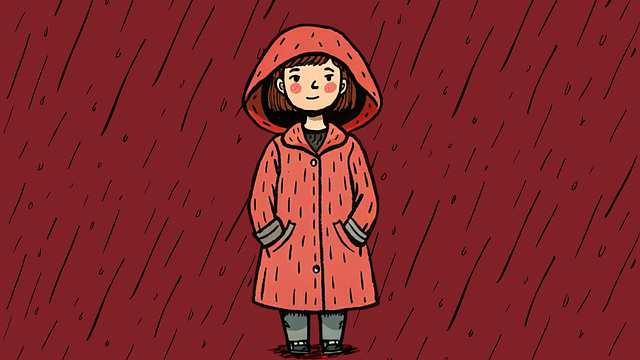Girls face gender stereotypes from a young age, limiting their identity and opportunities. Early education and girl-led projects counter these stereotypes, fostering creativity and agency. Digital age pressures, like social media, impact their mental health. Stereotypes in academics and media restrict access to STEM, sports, and self-expression. Mentorship, diverse role models, and advocacy empower girls to transcend norms and thrive. Breaking gender stereotypes is vital for personal development and an inclusive future.
Gender stereotypes can significantly impact girls’ lives, shaping their self-perception, opportunities, and overall well-being. This article explores the multifaceted effects of these societal norms on young girls. We delve into how stereotypes influence identity formation, limiting educational and career prospects, and contributing to social isolation. Furthermore, we examine the mental health implications, personal growth constraints, and the pressure to conform. Understanding these impacts is crucial in fostering an environment that empowers girls and encourages their unique development.
- The Impact on Self-Perception and Identity Formation
- Limiting Opportunities in Education and Careers
- Social Isolation and Pressure to Conform
- Mental Health Implications and Risk Factors
- Hindering Personal Growth and Independence
The Impact on Self-Perception and Identity Formation

Girls, from a young age, are often subject to gender stereotypes that can significantly impact their self-perception and identity formation. These societal expectations reinforce certain roles and behaviors deemed suitable for girls, limiting their sense of possibility and potential. Stereotypes may suggest that girls should be nurturing, quiet, and conformist, discouraging them from expressing their unique interests and talents. This can lead to a lack of confidence in pursuing goals, especially those outside traditional gender norms.
Unleashing creativity: girl-led projects and early childhood education for girls play a vital role in countering these stereotypes. By providing opportunities for self-expression and fostering critical thinking in girls, we enable them to challenge societal expectations. Encouraging girls to take the lead in their educational pursuits gives them a sense of agency and empowers them to define their identities on their terms. This can be facilitated through various means, including access to quality education for girls, which equips them with the skills to navigate a world where they are no longer bound by limiting stereotypes but instead, empowered to create their own paths.
Limiting Opportunities in Education and Careers

Social Isolation and Pressure to Conform

The social isolation and pressure to conform that many girls face can significantly impact their development and opportunities. In many societies, gender stereotypes suggest that girls should be quiet, docile, and empathetic, while boys are encouraged to be assertive and competitive. These norms can lead to a sense of isolation for girls who may feel they don’t fit into the expected roles. The pressure to conform can result in self-censorship, affecting their ability to express their true selves and pursue their interests freely. This is particularly evident in academic settings where girls might avoid STEM subjects due to societal expectations, missing out on potential career paths and opportunities.
Bridging the gender gap in learning and fostering literacy for girls worldwide is essential to counter these challenges. Encouraging girls to engage in sports and education empowers them to challenge stereotypes and build resilience. Visits us at inclusive education policies for girls anytime to learn more about how we’re working towards a future where girls are not limited by societal expectations but can reach their full potential, free from the constraints of outdated gender norms.
Mental Health Implications and Risk Factors

Gender stereotypes can significantly impact girls’ mental health and overall well-being. Stereotypes often associated with femininity, such as being emotionally expressive or needing constant reassurance, can pressure girls to conform to these expectations. This can lead to increased anxiety, depression, and a distorted self-image, especially if these messages are reinforced at home, in schools, or through media. Girls who internalize these stereotypes may feel inadequate or develop low self-esteem, which can further contribute to mental health issues.
Risk factors for girls affected by gender stereotypes include a lack of female mentorship and limited exposure to positive female role models. Women’s History Month and education initiatives that highlight female achievements can help counteract these negative impacts. Additionally, female mentorship programs for students can provide guidance and support, fostering a sense of belonging and encouraging aspirations that go beyond traditional gender norms. By advocating for girls’ rights in education and promoting environments that embrace diversity and individuality, we can empower girls to reach their full potential without being constrained by societal expectations. Visit us at advocating for girls’ rights in education anytime to learn more about how you can contribute to this cause.
Hindering Personal Growth and Independence

Gender stereotypes can profoundly hinder a girl’s personal growth and independence. Societal expectations often limit her choices, confining her to traditional roles that restrict her ability to explore diverse interests and pursue ambitions. These stereotypes not only stifle her creativity and talent but also prevent her from developing essential life skills and confidence.
This limitation is particularly evident in access to education, financing girls’ education, and comprehensive sex education. Bridging the gender gap in learning, including girl’s sexual and reproductive health education, is crucial for empowering young women. By visiting us at access to quality education for girls anytime, we can take steps towards fostering independence, breaking down stereotypes, and creating a more inclusive future where every girl has the opportunity to thrive.
Gender stereotypes have a profound impact on girls, affecting their self-perception, opportunities, social interactions, mental health, and personal growth. From an early age, societal expectations can limit a girl’s potential, forcing her to conform to narrow roles that restrict her choices in education and careers. This can lead to social isolation and put immense pressure on her to live up to these stereotypes. Moreover, the constant exposure to such biases may contribute to mental health issues and increase risk factors for girls. By challenging gender stereotypes, we empower girls to form a positive self-image, pursue their passions, and reach their full potential, ensuring a brighter future for all.
